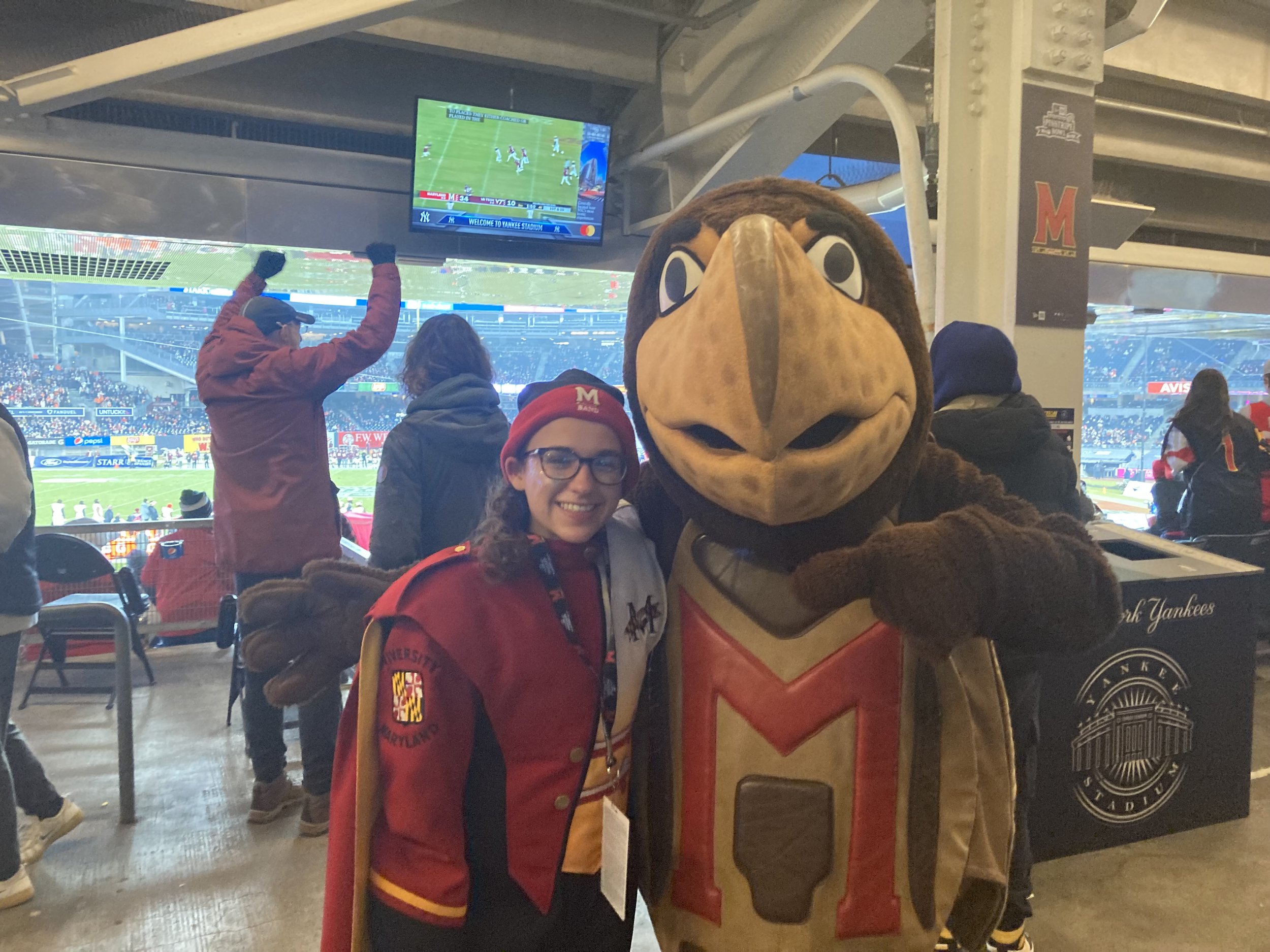People of Harvest Interview Series: Alana Ginsburg
NASA Harvest, NASA’s Food Security and Agriculture Program, is a global consortium with contributions from people of many different backgrounds, specialties, and interests. What unites us all is a dedication to bolstering food security around the world through Earth observation applications, and a shared passion for technology that improves lives. We are proud of the work that we do and the people who produce it. This feature introduces the people of NASA Harvest, showcasing the members of our organization and how their efforts support a food-secure future.
Alana Ginsburg (center) at a NASA Harvest co-hosted training workshop with the Zambian Ministry of Agriculture and the FAO. They're exploring the EWX Early Warning explorer tool to view recent EO climate and vegetation data. (June 2024)
Hi! My name is Alana Ginsburg and I am a Research Assistant with NASA Harvest Africa. I recently graduated with a B.S. in Environmental Science and Policy and a minor in Atmospheric Science from the University of Maryland College Park. I am originally from New York. In addition to my work with NASA Harvest, I've also interned with the National Weather Service and conducted research into microplastics contamination with the Environmental Science and Technology department at UMD.
What do you do within the NASA Harvest consortium?
I worked as an undergraduate research assistant with NASA Harvest for three years while I was a student, and am now finishing up some projects this summer post-graduation. I primarily work under Dr. Catherine Nakalembe on Africa program projects. My major focus throughout has been crop yield modeling based on machine learning. I have also participated in research on land cover change and on the EO sector at large. Lastly, I have helped with the development of a few workshops/trainings.
How did you get involved with NASA Harvest?
My freshman year at UMD (2021), I was looking to get involved with research and saw a posting from Dr. Sahajpal on MCUR - the university’s undergraduate research opportunity database. I then met Dr. Ritvik Sahajpal (NASA Harvest Crop Condition Co-Lead) and Dr. Nakalembe, and they got me started on some projects related to crop yield and yield data management for a couple African countries.
Alana presenting her poster on Kenya crop yield modeling at the American Geophysical Union's annual conference in December 2022
What do you enjoy about working with the consortium?
It’s been the best of both worlds in terms of an internship - I have worked on projects that have practical impacts beyond academia; I’ve been able to get a lot of course credits for my research, in addition to an intern stipend; and of course getting to say I work for NASA has been pretty awesome as well.
Can you highlight one memorable project/experience that you’ve had with NASA Harvest?
Earlier this month, I had the opportunity to travel to Senegal and Zambia to help facilitate two workshops, one on cropland mapping and the other on the development of national crop monitor bulletins. I remain blown away by the enthusiasm of everyone I had the opportunity to collaborate with, and it was so rewarding to learn from our partners there as well. As a non-African working on projects in the region from outside of the continent, it is important to me that my work is complimentary to the goals and motivations of people who are living and working there. Through helping with these trainings, I felt like we were able to empower a lot of local professionals to become future leaders in the African EO for agriculture sector (and work with some of the current ones!), and I am thankful I have been on such a great team at Harvest where the realization of this goal is within reach.
What’s next for you?
I have just over a month left with Harvest before I will be moving to New Orleans to participate in a service corps for the next year. I’m hoping to finalize my work on crop yield modeling as a sharable GitHub (and maybe a paper), and I also will be working on a paper on rangeland and cropland dynamics in Senegal, which I will be collaborating on with some researchers I met while at the recent SERVIR training in Senegal, as well as a high school intern. I’m also hoping to meet some cropland labeling goals - which hasn’t been a major part of the work I’ve done during my time with Harvest but I do like how you can get a stronger sense of rural livelihoods through it and its also a great way to support fellow labmates.
Alana on a farm in Nicoya, Costa Rica.
Alana was in marching band at the University of Maryland for 2.5 years. Here she is at the Pinstripe
Bowl in late 2021 with UMD mascot Testudo.




